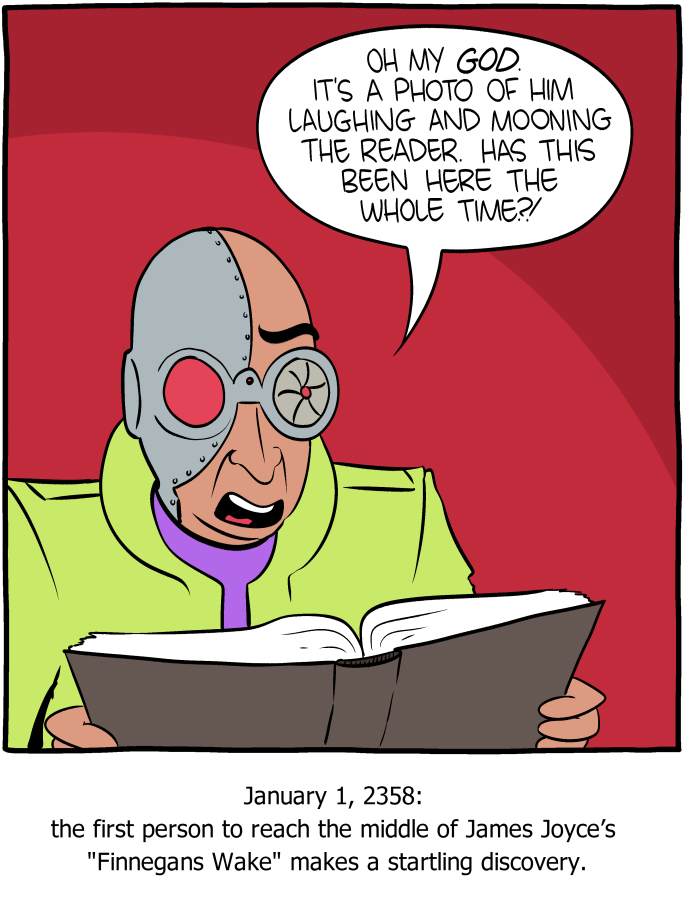Shadowsocks
The immediate reason for writing this post is the curiosity of an important Chinese product, Shadowsocks, whose name is known only in English and whose author, clowwindy, has only an English name.
Shadowsocks is an open-source encrypted proxy project, widely used in mainland China to circumvent Internet censorship. It was created in 2012 by a Chinese programmer named "clowwindy", and multiple implementations of the protocol have been made available since. Typically, the client software will open a socks5 proxy on the machine it is run, which internet traffic can then be directed towards, similarly to an SSH tunnel. Unlike an SSH tunnel, shadowsocks can also proxy UDP traffic.
Read the rest of this entry »
No one likes us, we don't care
 At the parade celebrating the Philadelphia Eagles' Super Bowl victory today, Eagles center Jason Kelce (decked out in a Mummer suit) led the crowd in a rousing chant that fits the team's underdog mentality:
At the parade celebrating the Philadelphia Eagles' Super Bowl victory today, Eagles center Jason Kelce (decked out in a Mummer suit) led the crowd in a rousing chant that fits the team's underdog mentality:
No one likes us, no one likes us
No one likes us, we don't care
We're from Philly, fucking Philly
No one likes us, we don't care
It was the capper to an amazing five-minute rant, which should be enjoyed in its entirety (uncensored video here, transcript here). Kelce also sang the chant with fans on the sidelines of the parade.
We’re from Philly, f**king Philly
No one likes us, we don’t care
Read the rest of this entry »
Secret messages
Mouseover text: "Fun fact: In the middle of every Derrida book, there are nuclear launch codes, the recipe for Coca Cola, and the location of Blackbeard's gold."
Read the rest of this entry »
When intonation overrides tone, part 3
Mark Liberman's "Real tone" (2/7/18), replying to "Tones for real" (2/5/18), is a nice demonstration of what's happening in real speech. The question for John McWhorter and all serious language teachers / learners is how much of it can be systematized and regularized? In other words, how much of it can be taught / learned?
I will be blunt: I don't think that the discernment and production of speech can be taught / learned at this ad hoc, microphonemic level. That is why the very best teachers and best students I know do not focus on lexemes or morphemes, but rather on phrases, clauses, or even whole sentences.
Read the rest of this entry »
Real tone
In 'Tones for real", 2/5/2018, John McWhorter expresses his frustration as an American learner of Chinese: "How much must I attend to the damned tones in a sentence, as opposed to in citation, to really speak this language?"
As John very well knows (when he's not frustrated by the difficulties of learning a new language), his question has the same answer as the analogous question "How much must I attend to the damned consonants and vowels in a sentence, as opposed to in citation, to really speak this language?" Fluent native speakers almost never use standard citation forms in fluent speech — sometimes the fluent versions are reduced or assimilated or dissimilated versions of the citation forms, and something they're just variably different. This is partly because informal speech is variably non-standard, but mostly because of the complex effects of linguistic and communicative contexts on the phonetic realization of phonological categories.
Unfortunately for language learners, these complex effects (though in some sense "natural") are different in different languages and dialects/varieties, so you can't just use your normal phonetic habits and expect the results to sound right. And we can use John's own pronunciation of English to illustrate some of these contextual effects.
Read the rest of this entry »
Negative concord in music
Alex Baumans sends a link to a new album Double Negative by the band The Men That Will Not Be Blamed For Nothing.
Negative Concord would be a better title, in my opinion.
"If I don't get into it not wanting to win…"
During today's episode of "Angelo Cataldi and the Morning Gang" on WIP sports talk radio, there was an interview with Doug Pederson, the coach of the Philadelphia Eagles.
One exchange caught my linguistic (as opposed to sports fan) attention:
| Angelo Cataldi: | Doug, did you ever think this would happen to you? |
| Doug Pederson: | I did. |
| Angelo Cataldi: | You did. |
| Doug Pederson: | I did. I did. I did, I didn't think it was going to happen in year two but you know, Angelo, listen, i- if- if- if I don't get into this business not wanting to win the Super Bowl, I'm going to go do something else, you know? |
Read the rest of this entry »
Illiterate phishers
I've recently noticed an uptick in spam with good graphical quality but terrible proofreading. A few random examples are below.
Read the rest of this entry »
SOTU interpolations
In "Text-as-data journalism? Highlights from a decade of SOTU speech coverage" (Online Journalism Blog 2/5/2018), Barbara Maseda surveys some of the ways that "media has used text-as-data to cover State of the Union addresses over the last decade".
When Erica Hendry asked me for thoughts about features of Donald Trump's style in last week's SOTU, the only contribution I could think to make to her article ("Trump’s language shifts from ‘I’ to ‘we’ in State of the Union address", PBS News Hour 1/31/2018) was the thought that in a speech like that one, which the president delivered but probably didn't write, the main indications of his personal rhetorical style would be the place where what he said deviated from the RAPFD ("Remarks As Prepared for Delivery").
Read the rest of this entry »
Permalink Comments off
Tones for real
For several years, John McWhorter has been studying Mandarin very seriously. He and I have, from time to time, corresponded about the best, most effective, most efficient way to do that. After years of assiduous learning, it seems that he has recently experienced a kind of satori about one of the most challenging aspects of acquiring fluency in spoken Mandarin: the tones.
Read the rest of this entry »
Sports chants
There was a big city-wide party last night here in Philadelphia, but the Philadelphia Orchestra, got on board back in early December:
Read the rest of this entry »
Alexa disguises her name?
"Alexa Loses Her Voice" won USA Today's Super Bowl Ad Meter:
I believe that this was also the first Super Bowl ad to raise a technical question about speech technology.
Read the rest of this entry »

